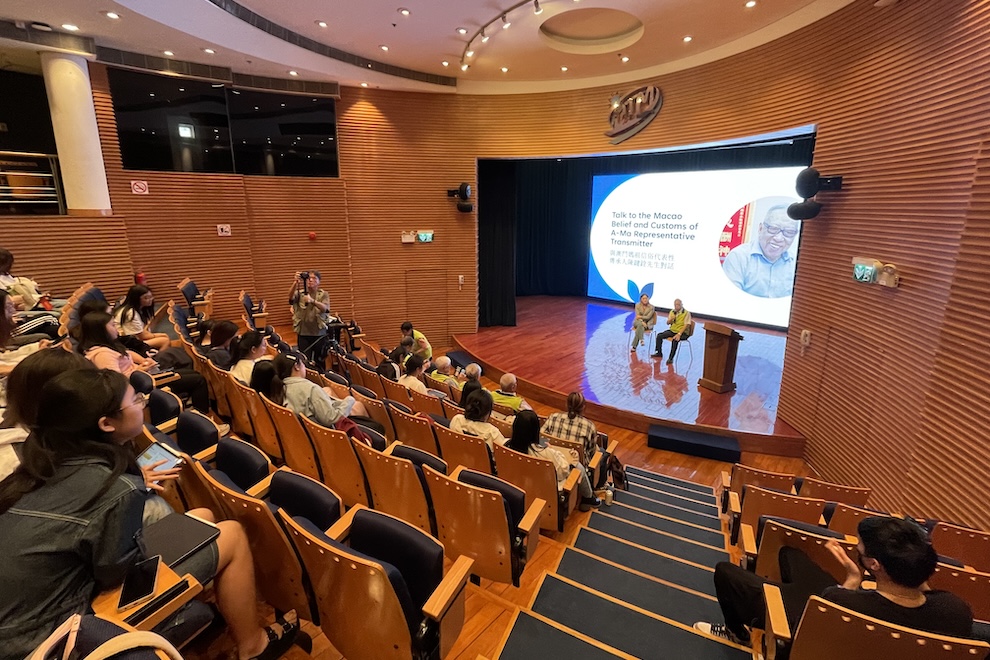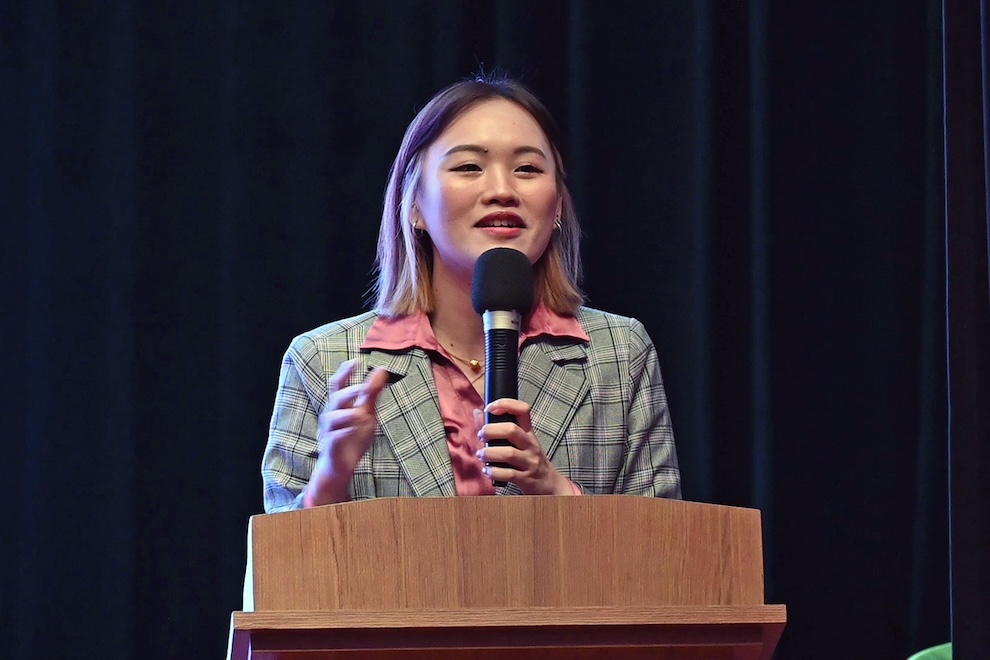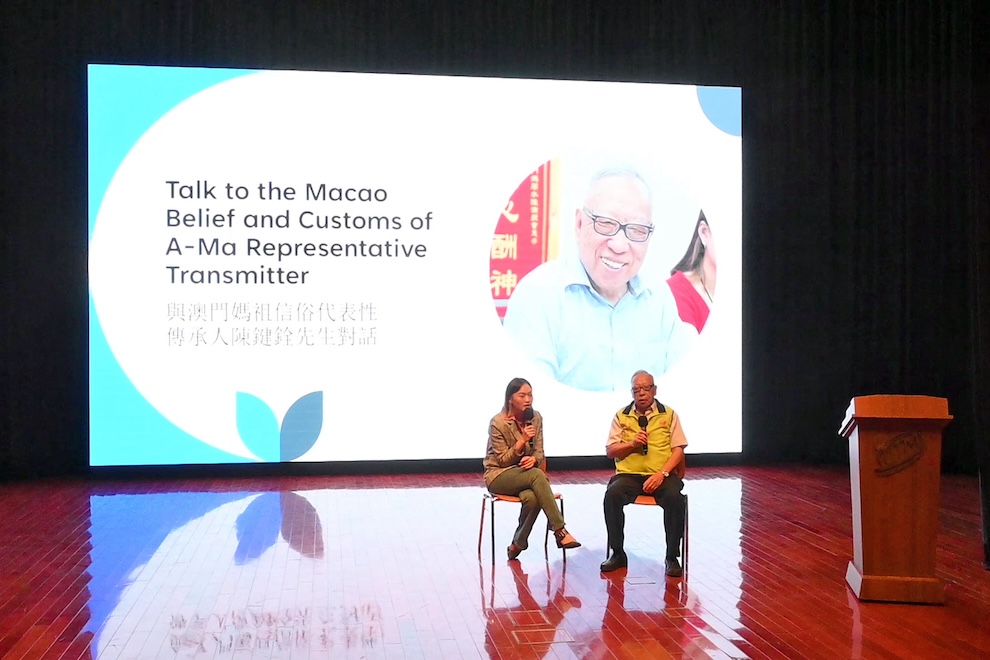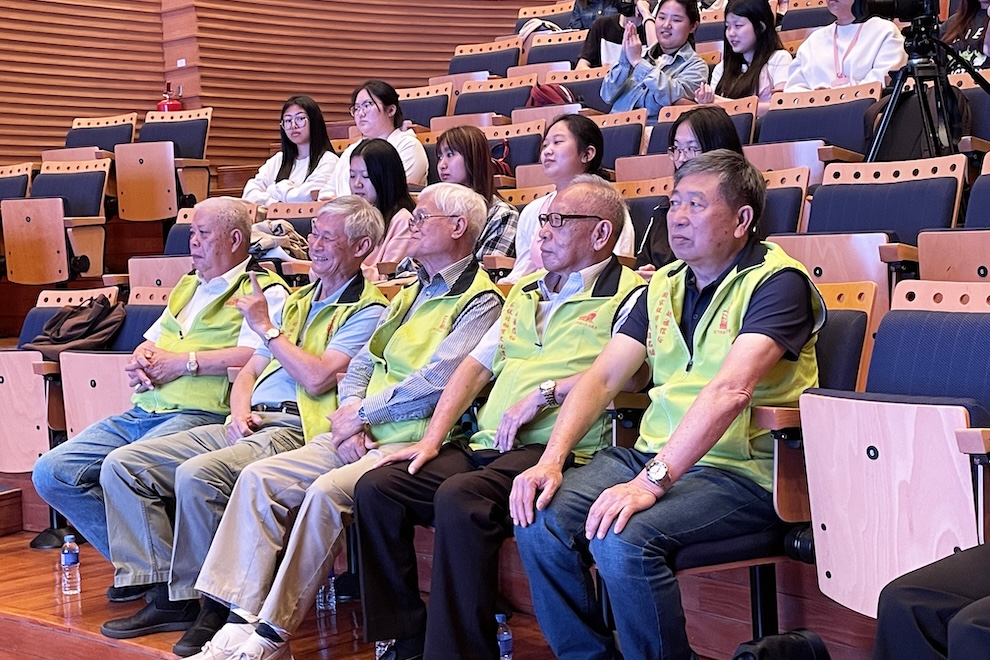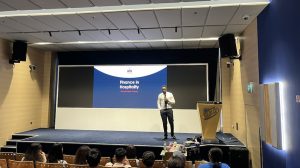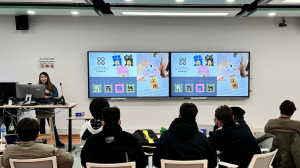A guest lecture on the belief and customs associated with A-Ma provided insights into efforts to preserve this aspect of Macao’s intangible cultural heritage. Participating in the event were representatives of the Chinese Opera Association of Terrestrial and Maritime Dwellers of Barra, a group at the forefront of safeguarding A-Ma associated traditions in the city
Year 1 students on UTM’s Cultural and Heritage Management Bachelor’s Degree Programme attended on 11 April a guest lecture on the Feast of A-Ma. The latter is one of Macao’s most prominent traditional festivals, paying homage to one of the city’s most venerated Chinese deities, A-Ma, the Goddess of Seafarers.
The event was hosted by UTM Lecturer Dr. Vicky Chen Zhaoyu. It was titled “The Sustainability of Intangible Cultural Heritage: Looking into the Macao Feast of A-Ma and its community”.
One of the invited speakers was Mr. Chan Kin Chun, who heads the Chinese Opera Association of Terrestrial and Maritime Dwellers of Barra, Macau. The group has been designated by the Ministry of Culture and Tourism of the People’s Republic of China as the preservation unit for the belief and customs associated with A-Ma in Macao.
The other guest speaker was Ms. Kate Kwan Chi Wo, a representative of Macao-based The Heritage Society, promoting the city’s heritage.
Additionally, a group of council members from the Chinese Opera Association of Terrestrial and Maritime Dwellers of Barra was also invited to attend the guest lecture. They discussed with students some of their practical experience in promoting and safeguarding the belief and customs associated with A-Ma in Macao.
The lecture was part of UTM’s Intangible Heritage course, included in the curriculum of the Cultural and Heritage Management Bachelor’s Degree Programme.
The event aimed to expand students’ practical knowledge of intangible cultural heritage in Macao. It offered undergraduates a platform to interact with intangible cultural heritage bearers and practitioners, allowing students to gain valuable insight on how to safeguard intangible heritage.
The belief and customs associated with A-Ma are deeply rooted in the Macao community. They were inscribed in 2014 on the list of national intangible cultural heritage of the People’s Republic of China. Preservation and transmission of this particular tradition have been sustained with the consistent dedication of the Chinese Opera Association of Terrestrial and Maritime Dwellers of Barra, and a group of enthusiastic practitioners.
The 11 April lecture was divided into three parts. First, Ms. Kwan talked about the origins and development in Macao of the belief and customs associated with A-Ma, as well as about the Feast of A-Ma and its core features. The festival is now a five-day event organised by the Chinese Opera Association of Terrestrial and Maritime Dwellers of Barra, coinciding with the 23rd day of the third month of the Chinese lunar calendar (this year on 1 May), the day A-Ma is believed to have been born.
The second part of the lecture featured a sharing session with both Ms. Kwan and Mr. Chan. The latter talked about his personal involvement in the Feast of A-Ma, and his passion and continuous effort in transmitting the belief and customs of A-Ma to more people, including via charity activities held by the Chinese Opera Association of Terrestrial and Maritime Dwellers of Barra.
The lecture concluded with an exchange between the council members of the association and the students, discussing ways to safeguard Macao’s intangible cultural heritage, while incorporating innovative ideas to promote its sustainable development.
This year’s Feast of A-Ma is to be held from 29 April to 3 May. The UTM students were invited by the council members of the association to join the festival as volunteers, in order to gain a closer look at the community’s efforts to promote the belief and customs associated with A-Ma.
Ms. Kwan emphasised the importance of people in the community working to safeguard intangible cultural heritage, as well as the need for younger generations to advance their interest and passion in understanding the value of folklore customs. As a young scholar who is herself passionate about heritage education, Ms. Kwan said she expected students to understand the significance for a community of its intangible cultural heritage, in turn participating in efforts to help transmit such practices.
UTM frequently organises guest lectures for students, providing them with the opportunity to engage directly with industry professionals and practitioners, gaining valuable insights. These talks aim to enrich the integration of theoretical concepts learned in class with practical application, to enhance students’ professional knowledge.
Content: UTM Lecturer Dr. Vicky Chen Zhaoyu; guest speaker Ms. Kate Kwan Chi Wo
Editor: UTM Public Relations Team



